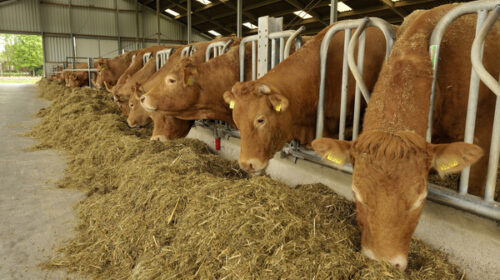Global Cattle Feed Market to grow at 3.9% CAGR, which is anticipated to reach USD 95.8 billion by 2030.
CRI Report has released a report titled “Cattle Feed Market – Analysis of Market Size, Share & Trends for 2019 – 2020 and Forecasts to 2030” which is anticipated to reach USD 95.8 billion by 2030. According to a study by CRI Report, the market is anticipated to portray a CAGR of 3.9% between 2020 and 2030. According to the report, The growing emphasis on animal health, the livestock sector, and the high prevalence of disease outbreaks among livestock has contributed substantially to the global livestock feed market development. During the forecast period, there is projected to increase demand for milk and dairy produce in developing countries. In addition, growing attention to nutrition precision, particularly in Europe, creates a worldwide market growth opportunity.
The market report on global Cattle Feed market includes in-depth insights as:
- The estimated value of the market was USD 75.7 billion in the year 2020.
- Region-wise, the market in North America, which held the largest market share of XX.X% in the year 2020, emerged as a key market for Cattle Feed Market.
- Based on ingredients, corn emerged as a key segment in the global Cattle Feed Market.
- Based on application, dairy emerged as a key segment in the global Cattle Feed Market
- Key players are likely to focus on product innovations and expansion through mergers to retain their positions in developed markets.
“The growing emphasis on animal health, livestock sector, and the high prevalence of disease outbreaks among livestock has contributed substantially to the global livestock feed market development. During the forecast period, there is projected to increase demand for milk and dairy produce in developing countries. In addition, growing attention to nutrition precision, particularly in Europe, creates a worldwide market growth opportunity.”, said a lead analyst at CRI Report.
Cattle feed provided commercially by feed producers is fed or mixed directly with feed concentrate or raw materials before feeding animals. The concept by FAO’s compound feed is a combination of natural, fresh, or preserved product of vegetable or animal origin or of a product produced from the manufacturing of that product, or organic or an inorganic material contained or not, in the form of a whole feed oral feed.” Commercial feeds are supplemented with special formulas prepared for and growth period of the cattle to be fed as a single feed. Beef cattle, dairy cattle, calves, and other animals are fed in compound cattle.
Global Cattle Feed market is segmented by ingredients into Wheat, Corn, and Additives. In 2020, Corn was the dominant segment of ingredients and represented over one-fourth of the world’s turnover. Major grain manufacturing companies including Cargill, Inc. and BASF SE are incorporated into the value chain, supplying feed products, providing producers with extensive supplies, and reducing supply and logistics costs. Also, few firms, such as Charoen Pokphand (CP) and Alltech, can backwardly manufacture commodities (feed grains) and finish goods to reduce the cost of raw materials.
Key Players in the Market
- Some of the key players operating in the global Cattle Feed market are BASF SE; DSM; Cargill, Inc.; ADM Animal Nutrition; Kemin Industries, Inc.; Biomin Holding GmbH; Nutreco; Land O’Lakes, Inc.; Farmer’s Grain Company; United Farmers Cooperative; DE HEUS. ALL; Godrej Agrovet Ltd., Other Prominent Players.
Get Valuable Insights into Global Cattle Feed Market
In the new report, CRI Report thrives to present an unbiased analysis of the global Cattle Feed market that covers the historical demand data as well as the forecast figures for the period, i.e., 2021-2030. The study includes compelling insights into growth that is witnessed in the market. The market is segmented by application into Dairy, Beef, and Calf. By ingredients, the market is divided into Wheat, Corn, and Additives. Geographically, the market is segmented into North America, Latin America, Europe, Asia Pacific and Middle East, and Africa.

